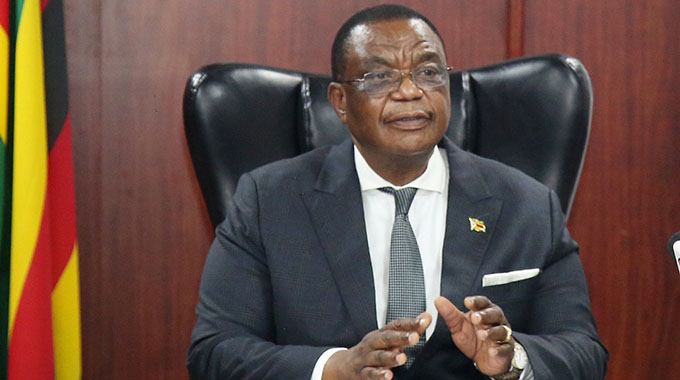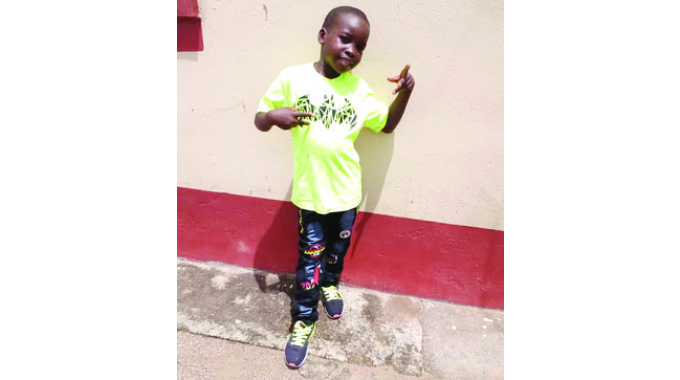More support for vulnerable groups

Farirai Machivenyika
Senior Reporter
THE Government has increased support to vulnerable groups since the Covid-19 outbreak last year, with 54 percent of needy families being assisted by Treasury, the Zimbabwe Vulnerability Assessment Committee (ZIMVAC) 2021 Rural Livelihoods Assessment Report shows.
The report was presented to Cabinet by Vice President and Minister of Health and Child Care, Dr Constantino Chiwenga, as Chairman of the Cabinet Committee on Food Security and Nutrition.
The ZIMVAC, led by the Food and Nutrition Council (FNC), conducted the Annual Rural Livelihoods Assessment (ARLA) last month to inform planning for targeted interventions to help the vulnerable people, given the prevailing situation in the country as well as their long-term vulnerability context.
The ARLA was also to monitor and report on commitments within the guiding frameworks of existing national food and nutrition policies and strategies, among them the National Development Strategy (NDS1) 2021-2025, the Food and Nutrition Security Policy; and the Zero Hunger Strategy.
The ZIMVAC highlights were that; there is confidence in the Covid-19 Vaccination Programme; access to water is very high among the generality of Zimbabweans; there is no child labour being practised in the country; Government is the main source of support to vulnerable households and that 84 percent of the communities did participate in agriculture during the summer season because of support rendered under the Pfumvudza/Intwasa Programme.
The reports also show that; there is more investment in the agriculture sector; there is a lot of construction happening in the rural areas; nutrition has improved across the country; 99 percent of people have gone without experiencing food insufficiency; and that the prevailing prices stability has improved access to basic commodities.
Speaking during a post-Cabinet briefing yesterday, Information, Publicity and Broadcasting Services Minister, Monica Mutsvangwa said Government was commended for maintaining consistency in its support of the vulnerable population.
“As a result of the Covid-19 pandemic, the country has witnessed increased support from Treasury and, a reduction of assistance from the Development Partners,” she said.
“At least 54 percent of the households received support from Government, with development partners complementing these efforts by supporting 25 percent of the households.
“The average household monthly income increased from US$33 in 2020 to US$75 in 2021.”
The report, she said, also revealed 27 percent of communities had irrigation schemes across the country while the prevalence of food insecurity across the country had gone down from 56 percent the previous year to 27 percent this year.
“This reflects Government’s ability to reduce the problem by over 50 percent compared to the previous season, hence the right step towards achieving one of the country’s goals in the NDS1, particularly of ensuring a food surplus economy.
“The 27 percent of rural households will translate into approximately 2 942 897 individuals requiring 262 856t of cereal (maize grain). A targeted movement of food from surplus areas to vulnerable areas will be undertaken since the country is generally expecting 828 263t cereal surplus according to the 2021 Second Round Crop Assessment Report,” said Minister Mutsvangwa.
The minister added that the findings further revealed that a well-coordinated Government assistance programme to smallholder farmers buttressed by the ready availability of inputs on the market and normal to above normal rainfall in most parts of the country, resulted in the country’s 2021 maize and traditional grains production increasing by over 147,5 percent compared to the 2020 harvest.
The Pfumvudza/Intwasa programme recorded a significant adoption rate, with 52 percent of households practising it and 56 percent of the sampled households having been trained within one year of its inception.
Minister Mutsvangwa added that tangible achievements were also recorded in the following programmes: — crop diversification; access to agriculture extension services and agricultural markets; agriculture modernisation/adoption of improved livestock practices; access to rural finances; access to rural infrastructure and services; non-farm and on farm income sources; and social protection.
The Basic Education Assistance Module supported 1,5 million learners out of the 4,5 million learners in school and had been extended from tuition fees to include examination fees and stationery while ZIMVAC highlighted the need to provide sanitary wear to the girl child so as to reduce the drop outs of girls from school.
“It is expected that some urban dwellers may experience food insufficiency for which Government is ready to provide the required support. Development partners and donor agencies are encouraged to procure food from inside the country as imports will not be necessary,” said Minister Mutsvangwa.







Comments